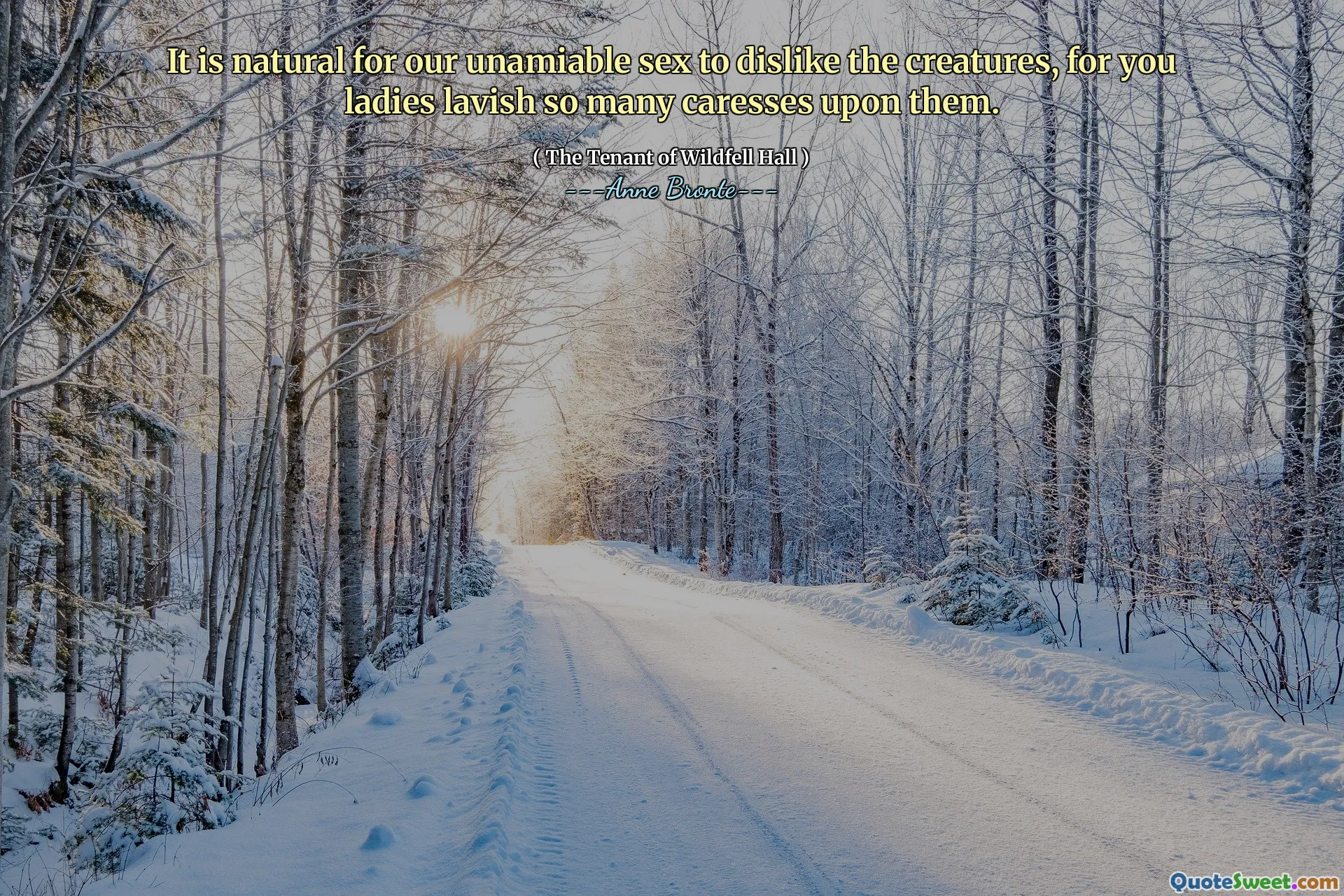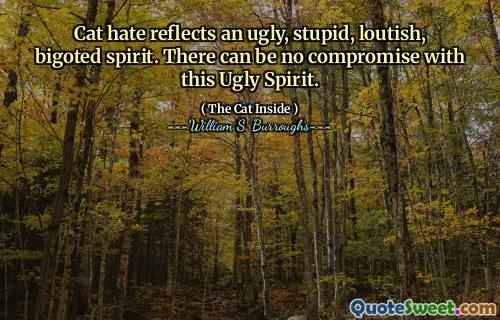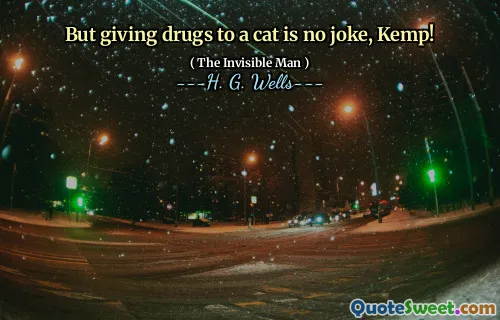
It is natural for our unamiable sex to dislike the creatures, for you ladies lavish so many caresses upon them.
This quote highlights a reflection on gender stereotypes and societal expectations regarding affection and emotional expression. The speaker appears to suggest that women are especially inclined to show tenderness and care towards animals or creatures, contrasting this behavior with what is presumed to be the male nature, which they describe as 'unamiable' or unpleasant. This statement invites contemplation on the roles and behaviors traditionally associated with different genders, possibly implying that women's nurturing tendencies are innate or socially reinforced.
The phrasing also subtly questions societal judgments—implying that a woman's indulgence in caresses towards animals might be viewed as excessive or unseemly by others, perhaps men or society at large. It's a reflection of how gender-based behaviors are often scrutinized or stereotyped, and how acts of kindness—such as caring for animals—can be interpreted through a gendered lens. The quote offers a lens into 19th-century gender dynamics, where women were often expected to be naturally nurturing, and any deviation or intensification of such nurturing could be viewed as socially noteworthy.
Furthermore, the quote can be seen as a commentary on societal attitudes towards emotional expressiveness and tenderness. It raises questions about what is considered 'natural' for men and women, and whether such distinctions serve societal or cultural purposes. It also subtly underscores the idea that kindness and affectionate behavior, especially towards animals or creatures, are associated with femininity—an association that continues to influence perceptions today.
In essence, this quote encapsulates the complex interplay between gender roles, societal expectations, and personal expression, prompting ongoing reflection on how these constructs shape human behavior and relationships with animals and each other.


